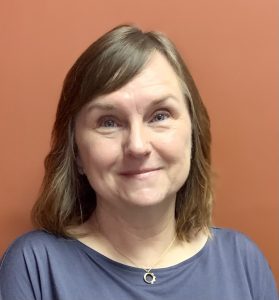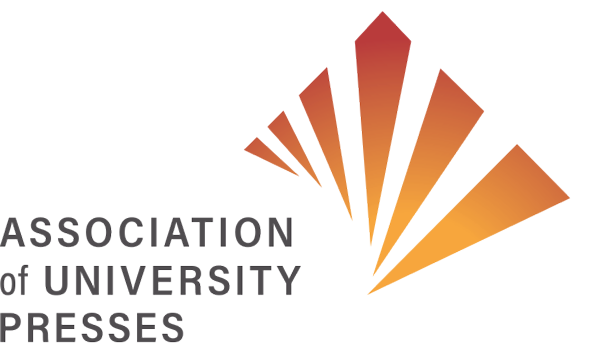Inaugural Presidential Talk

Director, University of Georgia Press
June 2021
Good afternoon. I hope you’ve enjoyed this annual meeting of the Association of University Presses. The Association’s swift and consistent transition to virtual programming and membership services has led to many of the successful hybrid practices that we’ll look to retain as we carefully emerge from isolation. These practices emerged out of a desperate and human need to stay connected and mutually supported. I remain in awe of each and every one of you for sticking it out during COVID Times. I know the challenges that my colleagues at the University of Georgia Press have faced—and many continue to face—as we prepare for a hybrid return to our offices this summer. The ongoing human cost of the past 18 months is glaringly evident, but so too is our resilience.
When I was nominated as president-elect last year, a fellow director commented that Niko had gotten the pandemic year, and I would get the recovery year. While the overall situation for many is improving, our members outside the US continue to suffer—and we all continue to grieve and process ongoing, immeasurable losses, both from COVID and racial and ethnic violence. As much as I feel a tremendous sense of relief and surprise at not just surviving but to a certain extent succeeding over the past year, I am also aware of the fragility and false assurance of recovery, of how quickly things can go “pear-shaped,” to quote my friend Peter Berkery. It is my hope that in the coming year I can lead the Association as it helps guide our membership beyond a time of uncertainty to a restorative and renewed focus on our collective power as a publishing community. This can be a year to begin to recover, reenvision, and realign our individual and overlapping strengths and commonalities as global members of the growing AUPresses. This can be a year to learn from and to demonstrate to our host institutions and other partners the massive and measurable impact of our publications on teaching and learning, on knowledge and curiosity, on readers everywhere in a recently socially isolated world.
At the beginning of a president’s term they forecast what the next twelve months might hold, and at the end they recap. Last week we heard Niko’s impressive summation of work done during one of the most challenging periods any of us have faced in our lifetimes. I am grateful for his leadership, which informs my own. I also hesitate to project what may come on my watch. Indeed, as our HR person told me during performance reviews earlier this year, simply surviving the pandemic year is accomplishment enough. However, I can promise that we’re pursuing new initiatives and efforts in our continuing efforts to be responsive and engaged with the needs of our member presses.
But first, a word about committees, which I promise is more interesting than it sounds: For the past year I’ve been the Board liaison to the Editorial, Design, and Production Committee. I’ve spent the past month recruiting new chairs of the AUPresses committees. I now have a much better understanding of and appreciation for the amount of Association work that gets done by this corps of volunteers. Did you know that we have 19 active committees and well over 150 individual members involved in that work? Our Committees of the Board are Audit, Nominating, and Admissions and Standards, while our Committees of the Association cover a wide range of professional areas, from Advocacy and Equity, Justice, and Inclusion (EJI) to Business Systems and Intellectual Property. If you’ve ever consulted an AUPresses toolkit, guide to best practices, survey results, or the Advocacy Resource Library on UP Commons—and yes, that’s a pitch—or attended a webinar, hangout, or annual meeting, chances are it was developed by one or more of our committees, task forces, or working groups. I cannot praise these volunteers and their service to our membership enough.
The Board doesn’t create a new committee, or disband one, without serious consideration. I’m pleased to announce that we have a new committee this year, on Open Access. This committee was formed after consulting with member presses and will maintain and extend the good work of the OA Task Force led by Erich van Rijn (California). The Board’s decision to establish this new group was also informed by the task force’s recent survey results that indicated that 82% of our member presses are engaged in some type of Open Access work. John Sherer at UNC Press will lead the new OA Committee, and I look forward to working with him on education and resource sharing.
Speaking of surveys, the Nominating Committee conducted one last year that gave space for a number of our constituents to raise questions about issues of transparency and governance, including how the Board works, especially nominations for the Board; paths to Board and committee service; what committee work entails; and, generally, how to get involved with the Association. Based on the recommendations of the Nominating Committee and supported by the ongoing, critical work of the EJI Committee, the Board has agreed to doubledown on its efforts to recruit new Board members and committee chairs and members who represent the diversity of our membership. Our goal is to create a pipeline to involvement across all levels of governance, and we need your help in this effort.
Too, we have discussed the expectation that members of both the Nominating Committee and the Board of Directors will engage in ongoing recruitment, mentoring, and educational efforts in support of this goal. We will provide more transparency with regard to the activities of the Board by offering at least one virtual opportunity for members to meet with and ask questions of Board members during the year. We will add a standing session at future Annual Meetings for those curious about increasing their participation and to hear from and talk with committee chairs and Board members.
I also want to use my presidential role to support and amplify the ever-expanding, rich member resources available and under development, including:
- UP Commons Birds-of-a-Feather discussion groups on topics including Equitable Workplaces, Presses Reporting to Libraries, Development and Fundraising, Early Career, and many more;
- two new UP Commons affinity groups for our member presses in the UK and Canada;
- key initiatives including the EJI Committee’s Demographic Data Survey pilot and the Advocacy Committee’s comprehensive toolkit for institutional relationship-building;
- efforts led by Annette Windhorn in connecting university presses with public humanities efforts;
- and all the ways that the Association supports the membership in actively embodying, through and in our work, our four core values of intellectual freedom, integrity, stewardship, and diversity and inclusion.
Recently a new director asked me for my best advice culled from over 30 years of scholarly and non-profit publishing experience. I told her: First, ensure that you and the press’s work are known to the decisionmakers and influencers at your institution. Second, get very familiar with the resources of AUPresses. Finally, communicate all of that to your staff so that they are confident in their press’s engagement both institutionally and professionally. As we evolve together over the next year, please know that I’m available to you and honored to serve as your president. Thank you for your trust and your vital, affirming work.
